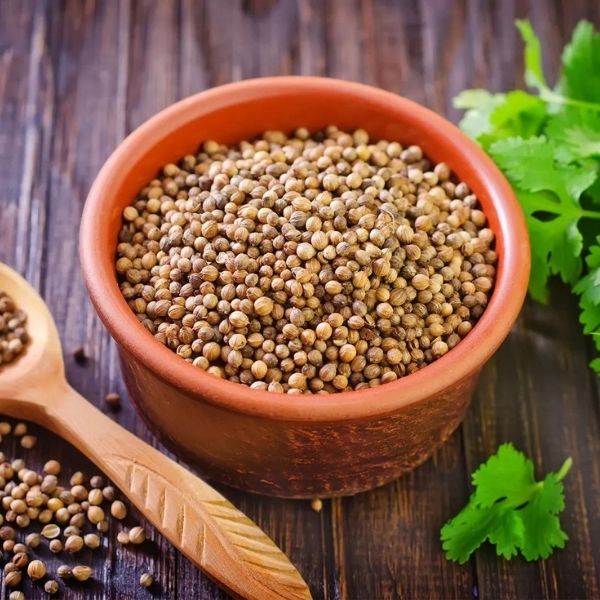Coriandrum sativum, commonly known as coriander or cilantro, is an annual herb in the Apiaceae family. It is native to regions spanning from southern Europe to southwestern Asia, but it is now cultivated worldwide for its culinary and medicinal uses. Different parts of the coriander plant, including the leaves (cilantro) and seeds, are utilized for their distinct flavors and potential health benefits.
Culinary uses: Coriander leaves (cilantro) and seeds are widely used in various cuisines around the world. Cilantro leaves have a fresh, citrusy taste and are commonly used as a garnish or ingredient in salads, soups, and salsas. Coriander seeds have a warm, aromatic flavor and are used as a spice in cooking, particularly in curries, stews, and spice blends.
Digestive health: Coriander has been traditionally used to support digestive health. It contains compounds that may help stimulate digestion, alleviate gas and bloating, and soothe the digestive system.
Antioxidant properties: Coriander contains antioxidants, such as flavonoids and phenolic compounds, that help protect against oxidative stress and free radical damage in the body. These antioxidants contribute to overall health and may have potential health benefits.
Anti-inflammatory effects: Coriander is believed to possess anti-inflammatory properties. It may help reduce inflammation in the body and alleviate symptoms associated with inflammatory conditions.
Cholesterol management: Some research suggests that coriander may help manage cholesterol levels. It may help lower LDL (bad) cholesterol and increase HDL (good) cholesterol, potentially contributing to cardiovascular health. However, more studies are needed to fully understand its impact on cholesterol management.
Traditional medicine: In traditional medicine systems, coriander has been used for various purposes. It has been used as a diuretic, a remedy for stomach disorders, and to support healthy menstrual cycles.
Coriander is generally safe for most people when used in culinary amounts. However, some individuals may have allergies or sensitivities to coriander. As with any herbal remedy or supplement, it is recommended to consult with a healthcare professional, especially if you have any underlying health conditions, are pregnant or breastfeeding, or are taking medications.
